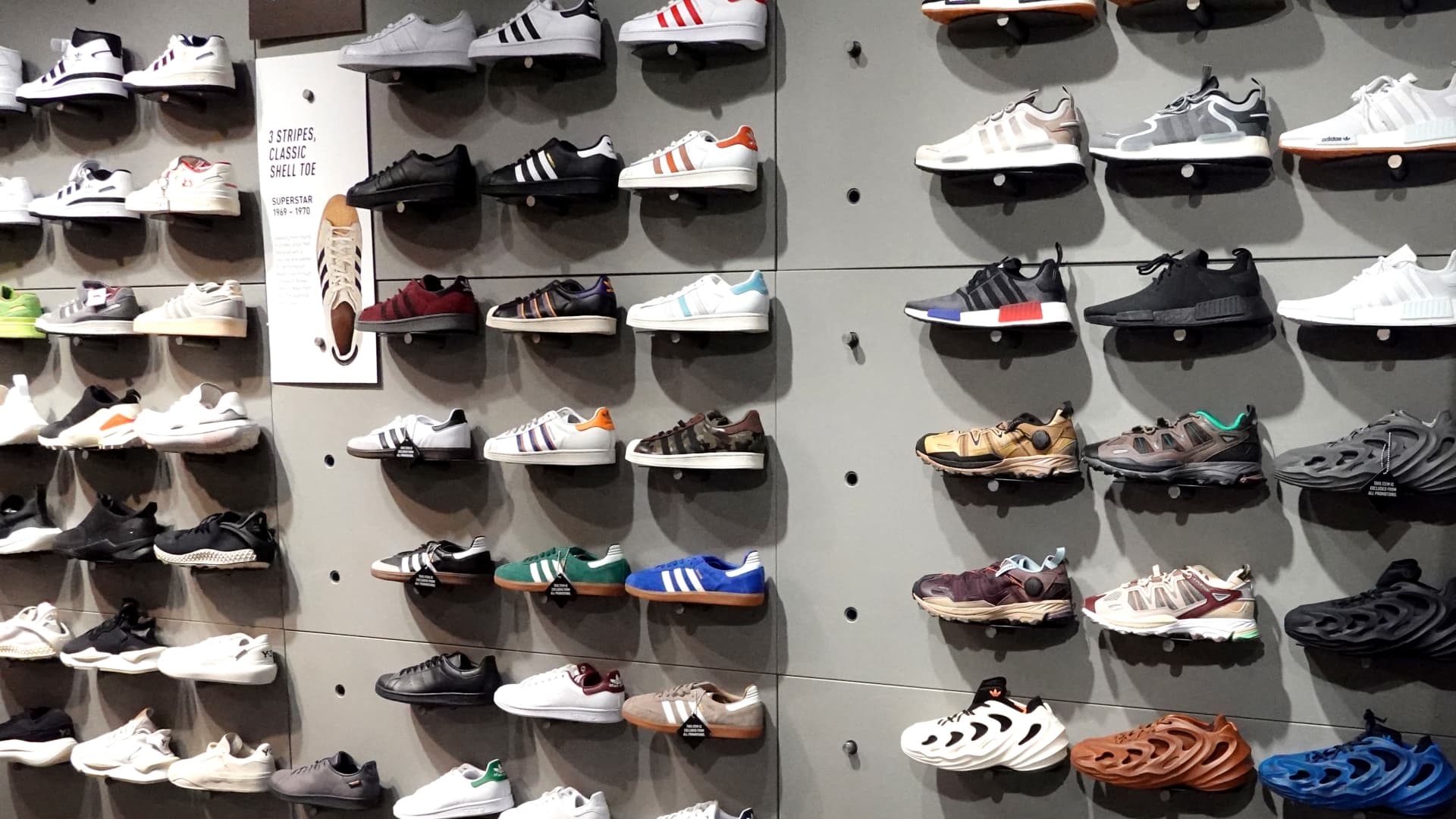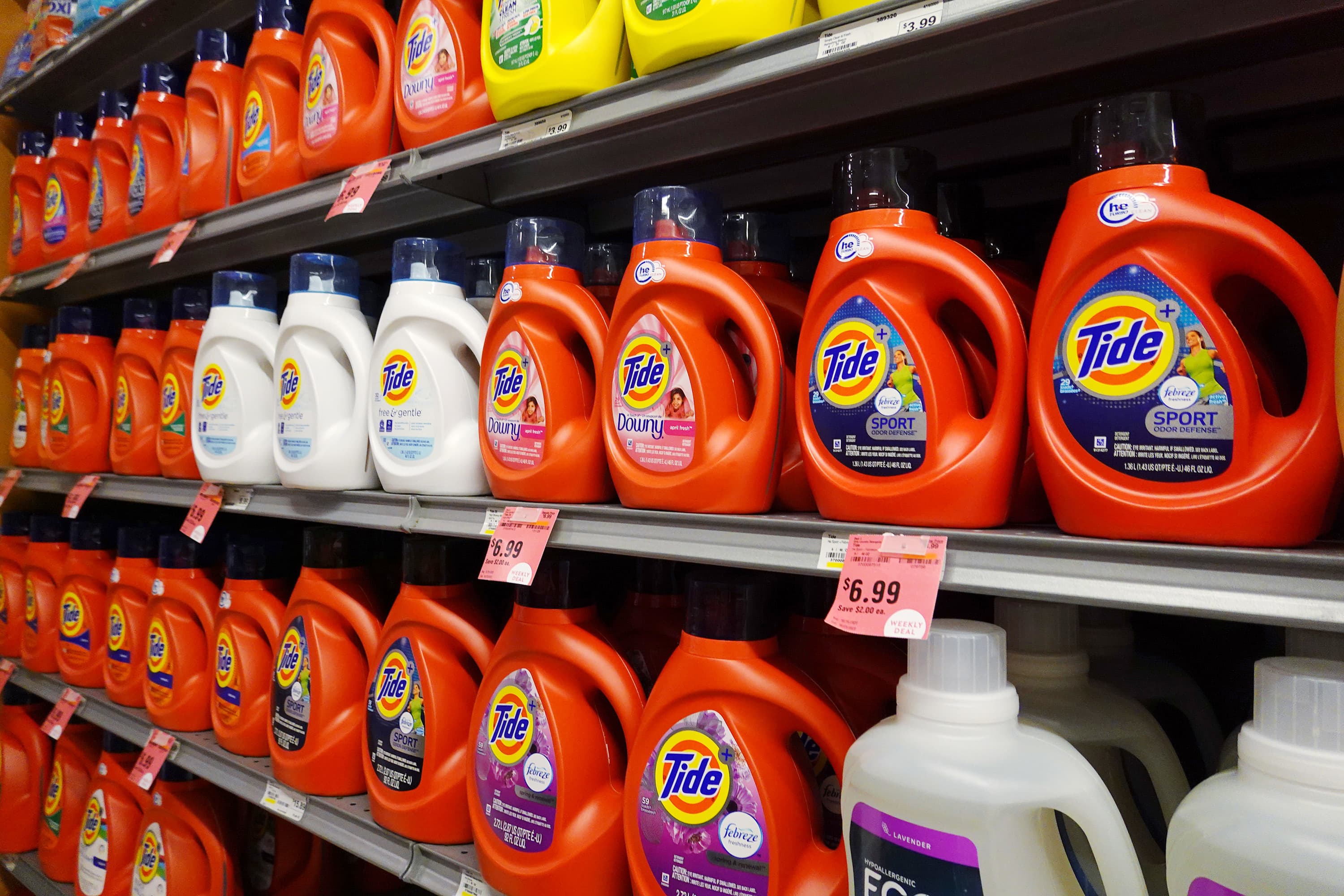Adidas on Wednesday reported a big fourth-quarter loss and slashed its dividend after the costly termination of its partnership with Kanye West’s Yeezy brand in October.
The German sportswear giant posted a fourth-quarter operating loss of 724 million euros ( $763 million ) and a net loss from continuing operations of 482 million euros. The company will recommend a dividend of 70 euro cents per share at its May 11 annual general meeting, down from 3.30 euros per share in 2021.
related investing news
Currency-neutral revenues declined by 1% in the fourth quarter as a result of the termination of the company’s Yeezy partnership and will decline at a high-single-digit rate across 2023, the company said.
Adidas is projecting a full-year operating loss of 700 million euros in 2023, marking its first annual loss for 31 years. The estimate includes a hit of 500 million euros in potential Yeezy inventory write-off and 200 million euros in “one-off costs.”
Adidas scrapped its highly lucrative partnership with rapper and fashion designer Ye — formerly known as Kanye West, the face of Yeezy — in October, after he made a series of antisemitic comments. The company had previously flagged a severe hit to revenues, if it were unable to shift its huge remaining stock of unsold Yeezy footwear.
The company said underlying operating profit will be “around break-even level,” reflecting the loss of 1.2 billion euros in potential sales from unsold Yeezy stock.
New Adidas CEO Bjørn Gulden, who took over from Kasper Rørsted at the turn of the year, said in a statement Wednesday that 2023 will be a “transition year,” as the company looks to reduce inventories and lower discounts in order to return to profitability in 2024.
“Adidas has all the ingredients to be successful, but we need to put our focus back on our core: product, consumers, retail partners, and athletes,” Gulden said.
“Motivated people and a strong adidas culture are the most important factors to build a unique adidas business model again. A business model built to focus on serving our consumer through both wholesale and DTC, that balances global direction with local needs, that is fast and agile, and of course, always invests in sports and culture to keep building credibility and brand heat.”
Over the whole of 2022, currency-neutral revenues were up 1% and grew in all markets except greater China, with double-digit increases observed in North America and Latin America. Operating profit came in at 669 million euros, while net income from continuing operations was 254 million euros.
“Inventory write-offs and one-off costs relating to the termination of its Yeezy partnership in October have cost Adidas dearly, resulting in an operating loss in the fourth quarter and a decline in sales. On top of that, sales in China fell sharply last year amid Beijing’s strict lockdown measures,” noted Victoria Scholar, head of investment at Interactive Investor.
“Plus Adidas has been dealing with increased supply chain costs post pandemic and the macroeconomic backdrop which has weakened the consumer and prompted heavy discounting to attract customers.”
Adidas shares were down 1.7% during morning trade in Europe, but remain up more than 11% on the year.




